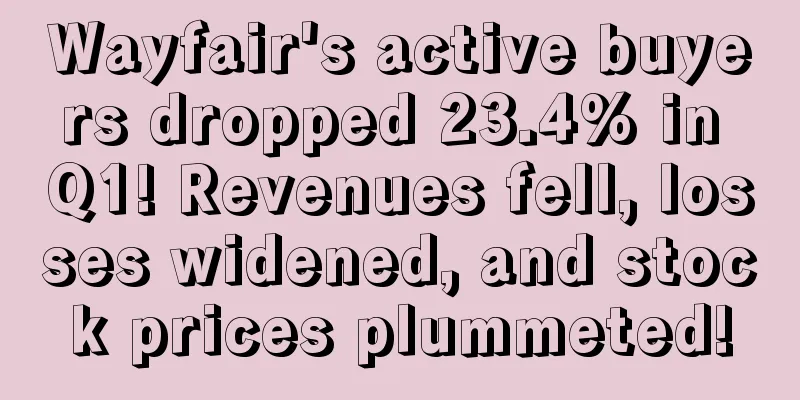Sellers, please take a look! The malicious competition tactics on Amazon that are hard to guard against!

|
Affected by the COVID-19 pandemic, people go out less and spend more time at home. This change in lifestyle has greatly increased Amazon's performance during the pandemic, and more and more people have flocked to the Amazon platform. Third-party sellers on Amazon have become saturated. Therefore, many sellers have begun to find new ways and use their own advantages to obtain orders and increase sales. Some have developed new products to expand new categories; some have chosen new advertising methods; but there are also sellers who use unfair means to attack their opponents .
Competition on Amazon has always been fierce, and it is not uncommon for peers to engage in spoofing and malicious competition. When legitimate sellers encounter sellers using unfair means, they are often unable to speak out. In this issue, we will talk about the unfair competition methods that sellers have encountered recently.
Some time ago, a seller’s listing was removed from the shelves. After seeking help from customer service, he learned that the details page of the Canadian site contained illegal words, which led to the US site being implicated and the listing being removed from the shelves.
The seller was very confused because he did not open a Canadian site, let alone sell products on the Canadian site. How could the details page on the Canadian site contain illegal words? Even if there was a problem with the Canadian site, why would the US site be implicated? So he posted a message on the forum asking for help.
After the post was published, it caused a huge uproar, with a large number of sellers complaining on the forum. Seller A: “Malicious competition is disgusting. I encountered the same situation as you, and my listing became a mess. Because I had no experience before, I opened more than 100 phone cases before I saved it.” Seller B: "This has always been a bug. Someone can fix it every day. It took me two months to successfully restore it. I was exhausted." "It's really bad. Just the day before yesterday, one of my popular links was hacked by someone in the same way. It has been hacked by the same method for no less than 5 times. I wish I could kill the person behind it." In response to this incident, some victimized sellers analyzed how these people exploited loopholes to add sensitive words.
First , they target the seller's ASIN , use tools to find out the corresponding UPC code of the ASIN, and use this UPC code to list the product on other sites to achieve cross-site follow-up sales. These cross-site follow-up sales operations are very covert, and they can maliciously modify the listing information without the original owner noticing, causing the ASIN to become a fake, thereby achieving the purpose of attacking peers.
This vulnerability of adding sensitive words across sites can not only make other people's listings go bad, but can also steal other people's reviews.
A seller shared in a forum that a product he sold on the European site was not synchronized with the US site. As a result, another seller synchronized the ASIN on the US site first and then tampered with the brand. The other party tried to merge the ASIN of this seller with his new product in order to get reviews as quickly as possible .
At the same time, on Weibo, a seller was also subjected to the same spoof, causing thousands of his inventory to become unsaleable, and tens of thousands of inventory were on the way . The seller tried to regain the editing rights from the other party on the US site, but the ASIN had brand gating and could not be operated, and it also prompted a dangerous goods review. In desperation, the victim seller asked for help on Weibo for a fee.
It seems that the purpose of these people is to steal the reviews that other sellers have worked hard to accumulate and use these reviews to quickly promote their own new products.
In addition to using cross-site review merging to steal other people’s reviews, these buyers also attack their peers by sending out fake order-brushing tasks. Because Amazon has banned fake orders and has recently stepped up its efforts to crack down on fake orders, some sellers have fallen into the trap.
The editor’s friend is one of those who fell into the trap.
According to him, a seller asked a service provider to post a fake order task on Facebook, and then sent his ASIN and fake discount code to the person who accepted the fake order task . As a result, a large number of buyers placed orders, and then all returned the goods. It seems that these fake order people also reported him to Amazon, causing him to receive an email warning from Amazon.
These unscrupulous sellers take advantage of the fact that Amazon is currently cracking down on fake orders and false reviews. They first hand the knife to the fake order sellers, and then use fake discount codes to force the fake order sellers to stab the sellers , which eventually leads to the sellers being warned by Amazon.
In addition to using fake orders to attack their peers, these sellers even think of using brands to attack their peers.
Protecting products from infringement by registering brands has become the best way for many sellers to combat infringement, but even this method has been found to be flawed by these unscrupulous sellers .
Some time ago, a friend of the editor encountered a "Li Gui beat Li Kui" situation, which made him very angry.
According to him, a seller registered an independent website with his own brand, stole his product information , and then sent the link of the independent website to Amazon , causing Amazon to determine that he had infringed and subsequently remove his product link.
Because Amazon has been cracking down on copyright infringement, even if a seller is only suspected of copyright infringement, they may be removed from the shelves, not to mention the other party submitting "evidence" to Amazon. It is no wonder that the seller is so angry that he is the real one, but he is regarded as the infringer.
Amazon is not a lawless place. As Amazon's efforts to combat unfair competition become more and more intense, these sellers who compete by unfair means will eventually be punished. Amazon hopes to build a fair and orderly market, so those who use crooked means will not go far. Only when sellers are down-to-earth and rooted in the loess can they flourish and reap the fruits.
What do sellers think about these unfair competition practices? Feel free to leave comments and share your thoughts~ |
<<: Amazon has a bug again! A large number of sellers on the US site have zero orders!
>>: Attention! The UK has also started reporting Prime Day! These time points are critical
Recommend
Six pitfalls of being an Amazon employee!
text The first pitfall: black technology Due to h...
Amazon's advertising budget has doubled by hundreds of times? Is this crazy or just crazy?
We are getting closer and closer to the year-end ...
After losing hundreds of thousands of dollars in one year, Amazon's solo sellers have returned to being "social animals"
Some people say that after working at Amazon for a...
Selling 20,000 units a month? Why is Anker planning for green and sustainable growth?
Trump promoted the domestic brand Anker power bank...
If you want to get a bigger piece of the Amazon pie, this is what you have to do!
As the Amazon platform grows, new sellers are con...
What is XShoppy? XShoppy Review
XShoppy independent station platform is independen...
The battle for the US toy market has begun! What will you compete for this holiday season?
It is learned that on August 30, Walmart released ...
A review of the Black Friday results in the US! Total online spending was lower than expected!
According to Adobe Analytics, total online spendin...
What is Moat? Moat Review
Moat is a startup that helps companies better meas...
What is clorys? Clorys Review
Clorys is an international fast fashion e-commerce...
Get ahead of the season! Target will start its holiday sale on October 10th!
<span data-shimo-docs="[[20,"旺季抢跑!Target 将...
Amazon Listing Image Rules: The Logic of Hot Selling
Today I will tell you about the underlying logic o...
New ideas for Amazon leak ads: Use word reduplication techniques to achieve 0.3 CPC + 5% ACOS efficient delivery! For everyone to discuss
TroubleKK My C position Hello, everyone. In the pr...
90% of Americans will buy holiday gifts, with TikTok being the main source of inspiration
It is learned that a new survey shows that more an...









